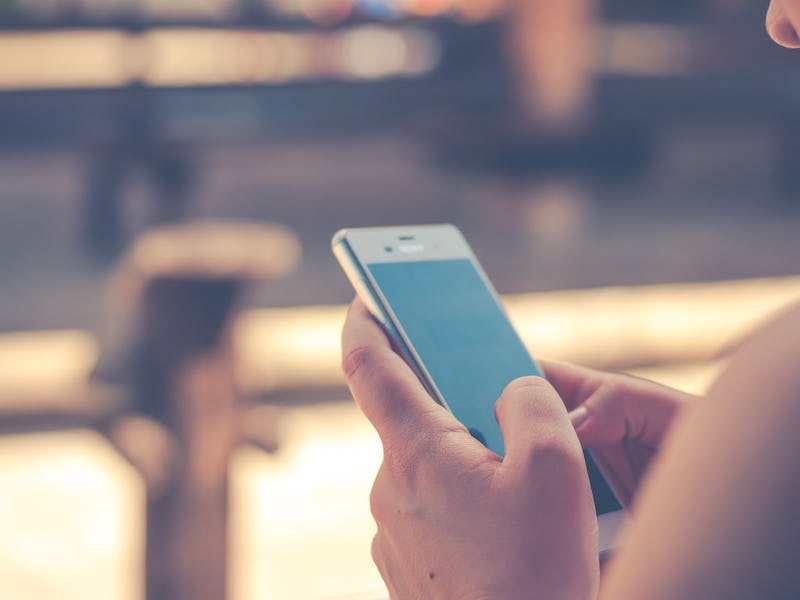Is Instagram's Anonymous Reporting a Move for Suicide Prevention?
The ability to report Instagram Live videos could open new doors to suicide prevention.

From cyberbullying to online recruitment for terrorist organizations, social media can be a conduit for violence, both on and offline.
But Instagram wants to make moves to change that, and took the first step when it announced a new anonymous reporting feature for Instagram Live videos.
Anonymously reporting a live video will send a prompt that is only visible to the streamer themselves offering a number to a mental health hotline, tips, and the option to reach out to a friend for assistance. The measure is a part of the social media network’s initiative to strengthen its “commitment to safety and kindness,” according to a Tuesday blog post.
This screenshot shows what users will see when someone anonymously reports a Live video.
The same post also announced that Instagram will now expand its filter to block offensive comments from just comments in English to those in German, French, Portuguese and Arabic, and commission a series of murals around the world to inspire “#KindComments.”
Content encouraging or displaying acts of violence have long plagued social media despite many sites having terms of service or community standards designed to prevent the posting of explicit content.
Twitter has been criticized for tacitly giving white supremacists like Richard Spencer and those who openly post imagery relating to hate groups like the KKK or neo-Nazis a platform for their bigotry, despite ostensibly prohibiting hateful conduct. The network also made little attempt to screen for teenagers participating in the Blue Whale Game, an online challenge of dubious authenticity that has nonetheless claimed multiple lives.
In late August, a woman was charged with nonconsensual dissemination of sexual images after she allegedly filmed the sexual assault of her unconscious friend and then posted videos of the assault to that friend’s Snapchat account. Snapchat’s community guidelines prohibit the dissemination of pornographic content, gratuitous violence and “any illegal shenanigans.”
And when live-streaming enters the equation, monitoring content appears to grow even more complicated for these networks. Multiple incidents of violence have transpired via Facebook Live, including the self-immolation of a Memphis musician in May, who doused himself on kerosene and attempted to kill himself and a former girlfriend while streaming live video to his Facebook feed.
Instagram has also dealt with its share of broadcast violence, despite the fact that its [community guidelines] explicitly state that “sharing graphic images for sadistic pleasure or to glorify violence is never allowed” on the site. In April, 13-year-old Malachi Hemphill accidentally shot and killed himself on Instagram Live. In August, alleged domestic abuser and rapper XXXTentacion appeared to fake his own suicide on an Instagram Live video that he later claimed was a music video preview.
But what will the efficacy of this new anonymous reporting, which chiefly targets self-inflicted violence, be?
On one hand, anonymity grants a certain freedom from repercussions when it comes to social media, as evidenced on apps like the now-defunct Yik Yak or summer craze Sarahah, both of which became breeding grounds for bullying. It’s easy to imagine users anonymously reporting friends, enemies or even unpopular celebrities as they live-stream as a new method of trolling.
But if the measure can provide the necessary resources to any individual who is struggling and projecting those struggles online, then maybe it’s worth the inconvenience.